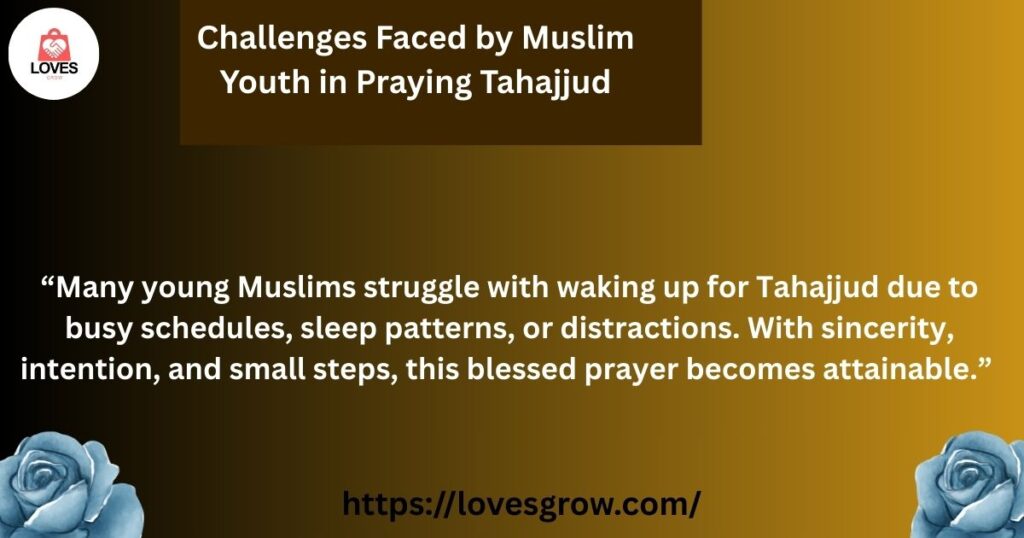Tahajjud Prayer is a special night prayer in Islam. It is voluntary and not compulsory. Muslims perform it to seek closeness to Allah and gain peace in life.
Many people wake up at night for Tahajjud. This prayer brings calmness and inner strength. It is a chance to pray sincerely and make personal supplications.
Tahajjud offers great rewards and blessings. It is usually performed after Isha and before Fajr. The prayer can be done in two or more rakats with devotion and focus.
Tahajjud Meaning

Tahajjud means staying awake at night to pray. Muslims perform it between Isha and Fajr prayer. This night prayer brings spiritual peace, closeness to Allah and inner strength. It is voluntary and highly rewarding for believers.
What is Tahajjud Prayer?

Tahajjud Prayer is a voluntary night prayer in Islam. It is offered after Isha and before Fajr prayer. This prayer helps gain spiritual closeness to Allah, forgiveness and peace of mind, and is highly recommended in Hadiths.
Niyat of Tahajjud Prayer

Niyat of Tahajjud Prayer means the sincere intention in the heart to perform this night prayer. Before starting, one should focus on worshipping Allah, seeking forgiveness and aiming for spiritual closeness, without needing to say it aloud.
Importance of Tahajjud Prayer

Tahajjud Prayer holds great importance in Islam. It helps a person become closer to Allah and gain spiritual strength. Regular prayer at night brings peace, forgiveness and guidance. It also helps avoid sinful actions and improves self-discipline.
Many benefits come from performing Tahajjud. Muslims receive inner peace, mental clarity, and blessings from Allah. It is a special time for supplication and reflection. Following the Prophet’s Sunnah, believers can earn mercy and develop a strong faith. Tahajjud strengthens the bond between a person and the Almighty.
Spiritual Significance in Islam

Tahajjud Prayer has deep spiritual significance in Islam. It brings closeness to Allah, inner peace, and forgiveness. Muslims use this time for supplication, reflection and faith strengthening. It is a special night prayer with many blessings.
The Tahajjud Prayer of the Prophet

The Tahajjud Prayer of the Prophet shows how Prophet Muhammad (PBUH) performed night prayers with devotion. He prayed after Isha and before Fajr, reciting Quranic verses, making dua and seeking forgiveness. His practice guides Muslims today.
Benefits of Tahajjud Prayer

Benefits of Tahajjud Prayer include gaining inner peace, mental strength, and closeness to Allah. It helps to avoid sins, receive blessings and find guidance. Regular prayer at night strengthens faith, patience, and spiritual growth.
How to Perform Tahajjud Prayer

Performing Tahajjud Prayer starts with waking up in the last third of the night. Make a sincere intention (Niyat) to pray for Allah’s blessings. Perform Wudu (ablution) and find a clean, quiet place to pray. Start with two rakats and recite verses from the Quran with full focus. Malachi 3:10
Next, bow and prostrate properly while saying Allahu Akbar. After completing the rakats, make personal dua and ask for forgiveness. Repeat rakats as desired. Regular practice brings spiritual growth, peace, and closeness to Allah, helping with everyday guidance and blessings.
Step-by-Step Guide on How to Perform Tahajjud

Begin Tahajjud Prayer by waking in the last third of the night. Make Niyat (intention) and perform Wudu. Pray two rakats, recite Quranic verses, and bow properly. End with personal dua for blessings and forgiveness.
Wake Up in the Last Third of the Night

Start Tahajjud Prayer by waking up in the last third of the night. This time is quiet and peaceful. Focus on prayer and supplication. Prepare your heart and mind for devotion, reflection, and connection with Allah.
Make Intention and Perform Wudu

Begin Tahajjud Prayer by making a clear intention (niyat) to worship Allah sincerely. Perform Wudu (ablution) to cleanse your body. This prepares your mind, body, and soul for prayer, focus and spiritual connection.
ALSO MUST READ THIS: St. Francis Prayer for Animals: Blessings, Protection, and Compassion
Start with Two Rakat

Begin Tahajjud Prayer with two Rakat. Stand and recite Qur’an verses with focus. Bow, prostrate and rise with devotion. Repeat in pairs. This method strengthens faith, discipline, and spiritual connection with Allah.
Make Dua

After completing Tahajjud Prayer, make Dua (supplication) sincerely. Speak from your heart and ask Allah for guidance, forgiveness and blessings. This moment deepens spiritual connection and shows trust in Allah’s mercy and care.
When to Pray Tahajjud

The Tahajjud Prayer should be offered during the last third of the night, after Isha and before Fajr. This time is peaceful and quiet allowing for deep focus, reflection and connection with Allah through sincere prayer.
How Many Rakats Are There in Tahajjud Prayer?

The Tahajjud Prayer can be performed with as many rakats as one wishes. Usually, two rakats at a time are offered. Prophet Muhammad (PBUH) often prayed about eight to thirteen rakats, always in pairs, for extra blessings.
How to Prepare

Preparing for Tahajjud Prayer starts with waking up on time and ensuring a quiet place. Perform Wudu to cleanse your body. Dress neatly and keep the mind focused on Allah. Remove distractions and be ready for devotion.
Exploring the Tahajjud

Exploring Tahajjud means learning its importance and following the steps carefully. Read the Quran and Hadiths to understand how the Prophet performed it. Reflect deeply and focus your heart on prayer and connection with Allah.
Tahajjud Prayer Time

Tahajjud prayer time happens after the Isha prayer and before Fajr. The best period is the last third of the night. During this time, the world is quiet, and Allah’s mercy is closest to those who pray sincerely.
Many Muslims wake up slightly before Fajr to perform Tahajjud. This time is ideal for supplication, forgiveness and spiritual reflection. Observing Tahajjud prayer regularly helps strengthen faith, gain inner peace and bring blessings. Following the Prophet’s guidance makes this night prayer more rewarding and meaningful.
Sleep Before Tahajjud

Many people rest before Tahajjud prayer to wake up refreshed. Short sleep helps focus during prayer. Sleeping after Isha is fine, but some may pray directly. Proper rest strengthens devotion, concentration and spiritual connection with Allah.
Optimal Timing for Maximum Reward

Performing Tahajjud prayer in the last third of the night brings the most reward. This timing is peaceful and quiet. Praying at this hour increases spiritual benefits, closeness to Allah, and the acceptance of sincere duas.
Challenges and Tips

Many people face challenges in performing Tahajjud prayer. Waking up at night can feel difficult. Busy schedules, tiredness, and distractions make it hard to stay consistent. Lack of motivation also stops some from praying regularly.
Simple tips help to overcome these challenges. Set a regular sleep schedule and a quiet space for prayer. Start with a few rakats and gradually increase. Ask family or friends for support. Staying patient and consistent strengthens faith. These small steps make performing Tahajjud easier and spiritually rewarding.
Challenges Faced by Muslim Youth in Praying Tahajjud

Many Muslim youth face challenges in praying Tahajjud. Staying awake at night is hard. School, homework and social media cause distractions. Lack of motivation and guidance also makes performing night prayer difficult for young believers.
Incorporating Tahajjud into Modern Life: Tips and Advice

Incorporating Tahajjud into modern life needs careful planning. Set a consistent sleep schedule and wake up for prayer. Create a quiet prayer space at home. Start with a few rakats and gradually increase. Stay consistent and seek support from family.
This Is Why You Should Pray TAHAJJUD BY Mufti Menk
Conclusion
In conclusion, performing Tahajjud prayer brings Muslims closer to Allah and offers inner peace and spiritual growth. It strengthens faith, provides guidance and helps overcome daily challenges. Regular practice deepens devotion and mindfulness.
Moreover, incorporating Tahajjud into daily life encourages discipline, patience, and reflection. Even small efforts yield great rewards, making this night prayer a meaningful part of spiritual practice. Starting gradually and staying consistent allows anyone to benefit from its blessings and experience a closer connection with the Almighty.
FAQs
Can Tahajjud Prayer be Missed and Made Up Later?
Tahajjud is a voluntary prayer, so missing it does not count as a sin. It cannot be “made up” like obligatory prayers. Muslims are encouraged to perform it regularly, but skipping one does not require compensation.
How Long Should Each Tahajjud Session Last?
The length of Tahajjud prayer depends on the individual. Even two rakats are sufficient. Some may pray longer, reciting more verses from the Qur’an. Focus, devotion, and sincerity are more important than time.
Can Children Perform Tahajjud Prayer?
Yes, children can perform Tahajjud. They may start with short rakats and gradually increase. Parents can guide them and encourage regular practice to develop spiritual discipline.
What Are the Common Mistakes While Praying Tahajjud?
Common mistakes include rushing through rakats, not focusing on duas, skipping Wudu, or neglecting sincerity. Avoid distractions and maintain devotion to Allah during the prayer.
How Does Tahajjud Prayer Strengthen Spiritual Connection with Allah?
Praying Tahajjud in the quiet of night creates deep reflection and devotion. It allows Muslims to communicate with Allah, seek forgiveness, and express gratitude, strengthening faith and inner peace.
